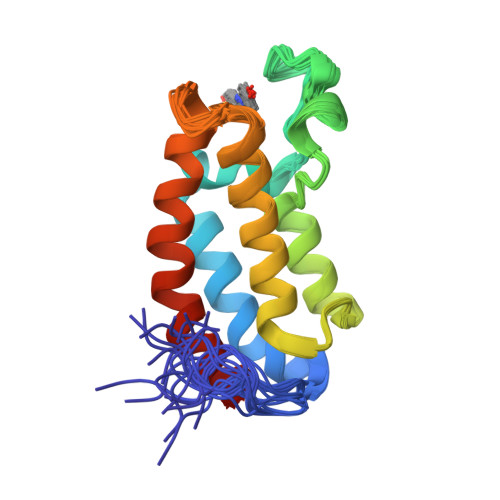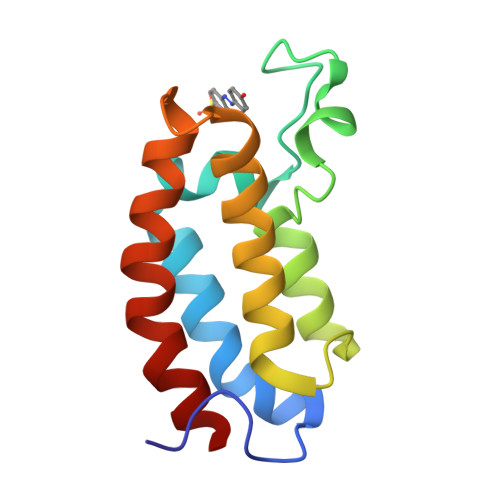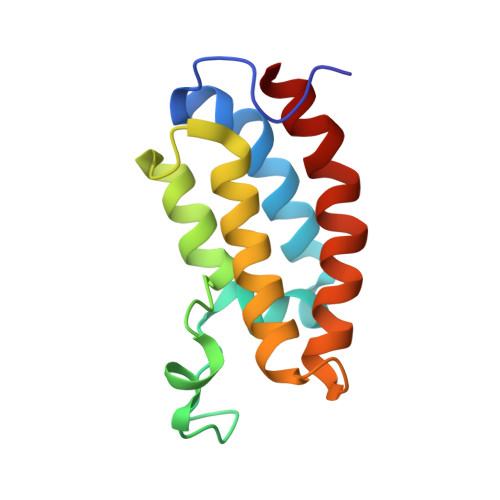A Small Molecule Binding to the Coactivator CREB-Binding Protein Blocks Apoptosis in Cardiomyocytes.
Borah, J.C., Mujtaba, S., Karakikes, I., Zeng, L., Muller, M., Patel, J., Moshkina, N., Morohashi, K., Zhang, W., Gerona-Navarro, G., Hajjar, R.J., Zhou, M.M.(2011) Chem Biol 18: 531-541
- PubMed: 21513889
- DOI: https://doi.org/10.1016/j.chembiol.2010.12.021
- Primary Citation of Related Structures:
2L84, 2L85 - PubMed Abstract:
As a master transcription factor in cellular responses to external stress, tumor suppressor p53 is tightly regulated. Excessive p53 activity during myocardial ischemia causes irreversible cellular injury and cardiomyocyte death. p53 activation is dependent on lysine acetylation by the lysine acetyltransferase and transcriptional coactivator CREB-binding protein (CBP) and on acetylation-directed CBP recruitment for p53 target gene expression. Here, we report a small molecule ischemin, developed with a structure-guided approach to inhibit the acetyl-lysine binding activity of the bromodomain of CBP. We show that ischemin alters post-translational modifications on p53 and histones, inhibits p53 interaction with CBP and transcriptional activity in cells, and prevents apoptosis in ischemic cardiomyocytes. Our study suggests small molecule modulation of acetylation-mediated interactions in gene transcription as a new approach to therapeutic interventions of human disorders such as myocardial ischemia.
Organizational Affiliation:
Department of Structural and Chemical Biology, Mount Sinai School of Medicine, One Gustave L. Levy Place, New York, NY 10029, USA.

















